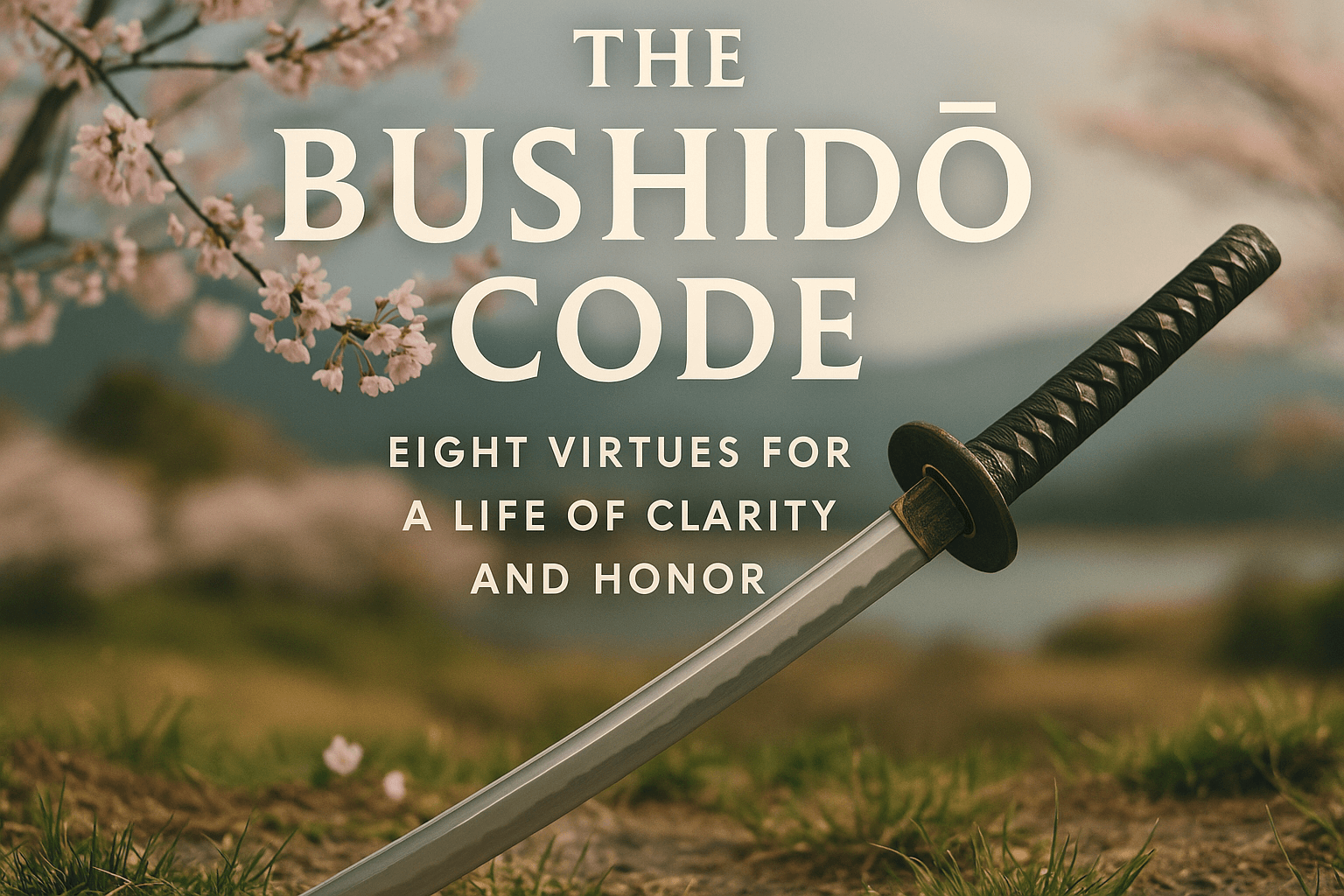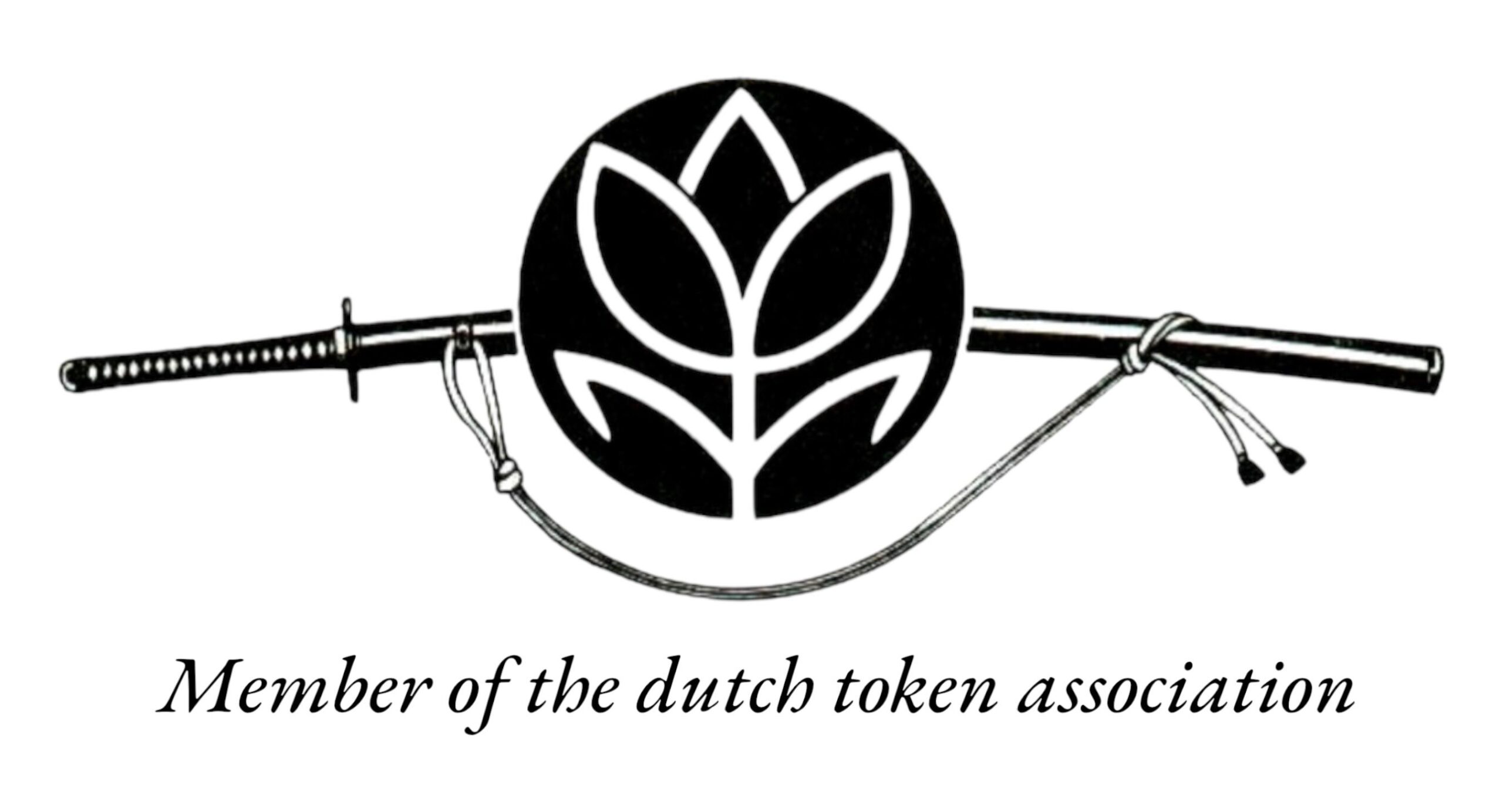Introduction: The Way of the Warrior
In a restless world, many are searching for meaning. They want direction. They want discipline.
Centuries ago, in feudal Japan, warriors lived by a code. It guided their actions, shaped their character, and gave purpose to their lives. This code is called Bushidō—the Way of the Warrior.
Bushidō was not just about combat. It was a way of living with honor, integrity, and resolve. It taught courage, loyalty, and humility. Guided by these principles, the samurai faced life and death with calm strength.
Though the age of the samurai has passed, their code endures. Bushidō speaks to anyone seeking clarity, purpose, and a path with heart.
In these pages, we look to this ancient way—not as history, but as a compass for today.
Rectitude (Gi): Living with Integrity
Rectitude, or Gi, is the foundation of a life well-lived. It is doing what is right, even when no one watches. It is choosing principle over comfort, truth over gain.
Integrity is not a single action. It is a series of small decisions, made with intention, repeated day after day.
Gi is clarity in values. It is the quiet strength to stand firm, to say no when others say yes, to act when others stay silent.
In the dojo, every movement has purpose. In life, every choice does too. Rectitude asks that we bring the same care to both.
There is no shortcut to integrity. It is earned. It is lived. It is who we are when the moment comes—and we choose rightly.
Courage (Yū): Strength to Stand Alone
Courage, or Yū, is not reckless. It is not loud. It is the quiet decision to do what is right, even when fear is near.
A warrior does not wait for fear to pass. He moves with it. Courage means standing alone when no one else will. Choosing honor over comfort. Choosing truth over approval.
In the dojo, fear is a known presence. Not something to be erased—but understood. Faced. When a student steps forward to spar, or bows first to begin kata, they show Yū. Not because they are unafraid, but because they move anyway.
Courage is found in the moment after doubt. In the breath taken before a hard choice. In stillness before action.
To act with courage is to live in line with your values, regardless of the outcome. This strength does not shout. It stands. Calm. Firm. Unshaken.
Benevolence (Jin): Power through Compassion
In Bushido, Jin means benevolence. It is the strength that comes from care, not control. The sword is powerful, but the hand that helps is stronger.
A warrior shows compassion not as weakness, but as choice. To lift others when you could destroy them—that is true discipline.
Benevolence flows from courage. Only the brave are gentle. Kindness takes control of the self before extending to others.
Every act of mercy builds character. Every moment of patience tempers the spirit.
Through Jin, conflict gives way to connection. Authority becomes service. Power becomes peace.
In the way of the warrior, compassion is not optional. It is essential.
Respect (Rei): Discipline in Every Gesture
Respect begins before the first move. In the dojo, it is shown in a bow, a pause, a quiet acknowledgment. Rei, the practice of respect, grounds all actions.
Every gesture matters. The way one enters the space. The way one listens. Shoes lined up. Words chosen carefully. Eyes alert, but humble.
Respect is not submission. It is recognition—of the people, the place, and the path. It brings balance. It keeps ego in check.
Without rei, skill is hollow. With rei, every technique has purpose. Every exchange becomes dialogue, not confrontation.
Discipline is not harsh. It is caring. It protects the integrity of what we train for. It reminds us: training is shared. Growth is mutual.
In the quiet of respect, harmony lives.
Honesty (Makoto): Words as Deeds
A samurai’s word holds weight. Words are not just sounds—they are promises. To speak is to act.
Honesty, or makoto, is more than truth-telling. It is the alignment of thought, speech, and deed. A lie, even small, cracks this alignment. A spoken promise, once made, binds like a contract written in ink.
The samurai does not speak carelessly. Silence is preferred to empty vows. When he speaks, he does so with certainty. No need for force—just clarity.
Makoto asks for discipline. It means saying only what you mean, and meaning what you say. There is no space for falsehood. No room for exaggeration. In the way of the warrior, every word counts.
This level of integrity builds trust. Not just with others, but with oneself. Over time, a life of honest words becomes a life of right action.
The path is not easy. But it is strong and straight, like a blade drawn with purpose.
Honor (Meiyo): The Measure Within
Honor begins with the self. It is not something others give; it is something you live.
Meiyo rests on self-respect—earned by consistent action, not mere words. A disciplined life, guided by principle, speaks louder than any claim.
Each decision is a stroke on the canvas of reputation. Together, they reveal who you truly are.
Honor shows not in grand gestures, but in the quiet refusal to compromise. In doing what is right, even when no one sees.
To walk with honor is to walk a straight path. Not because it is easy, but because you choose it, again and again.
In the dojo, we bow to one another. This is not submission. It is mutual recognition. “I see your integrity. I offer mine.”
So too in life. Honor is the measure within. If it is sound, nothing external can shake it. If it is lacking, no praise can fill the void.
Live truthfully. Act consistently. Let your life speak.
Loyalty (Chūgi): The Bond Unbroken
Loyalty, or Chūgi, is the steady flame that does not flicker. It is the warrior’s promise—quiet, firm, and enduring.
To be loyal is to hold fast, even when tested. It is not blind obedience. It is chosen commitment. A bond to purpose, to people, to values.
In the dojo, loyalty means showing up. Training with full heart. Respecting the teacher, standing by your fellow students. Outside, it becomes how we act in life. Keeping our word when it’s hard. Serving without needing applause.
Chūgi is not loud. It speaks in action. In staying when others walk away. In remembering the path, even when no one is watching.
The loyal heart is a clear one. Anchored. Trustworthy. Strong not because it resists change, but because it holds true to the core.
Loyalty is the thread that binds duty to honor. It is the silence that says, “I will not leave.”
Self-Control (Jisei): Master Before All
Self-control, or jisei, is the foundation of all mastery. Before you can lead others or confront an opponent, you must govern yourself.
A warrior’s strength lies not in reaction, but in restraint. Anger clouds judgment. Desire blurs direction. Fear paralyzes action. But with discipline, clarity returns.
Jisei means choosing response over impulse. It means training the mind as thoroughly as the body. Years of repetition. Every breath observed. Every emotion acknowledged, not obeyed.
In stillness, you find control. In control, you find freedom.
Master yourself. All else follows.
Conclusion: Walking the Bushidō Path Today
Bushidō is not just history; it is a practice. Its virtues—honor, courage, compassion, respect, honesty, loyalty, and self-control—remain relevant now.
In daily life, these are choices. Honor in our word. Courage in our truth. Compassion in our response. Respect in how we listen. Honesty in action. Loyalty to what matters. Discipline in all things.
There is no need for ceremony. Clean your space. Keep your promises. Stand for others. Train your mind. Walk straight. Speak clearly. Give more than you take.
A modern code of honor begins within. Not perfection, but intention. Walk quietly. But walk with purpose.
This is the path.





